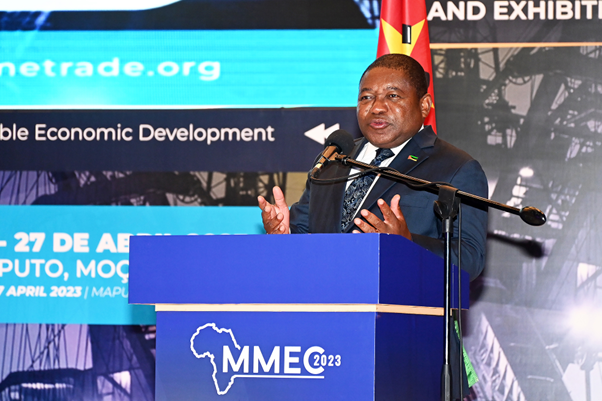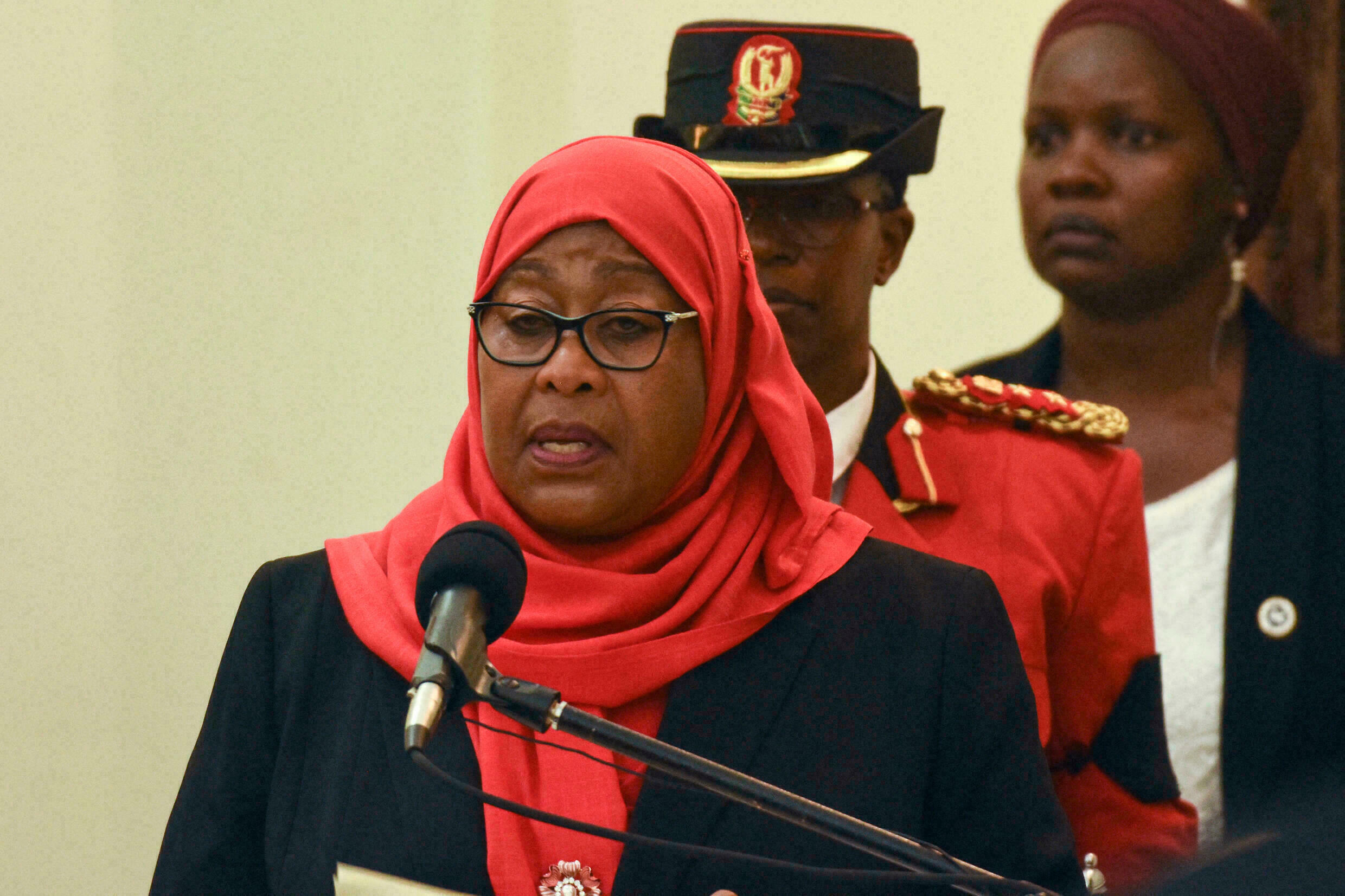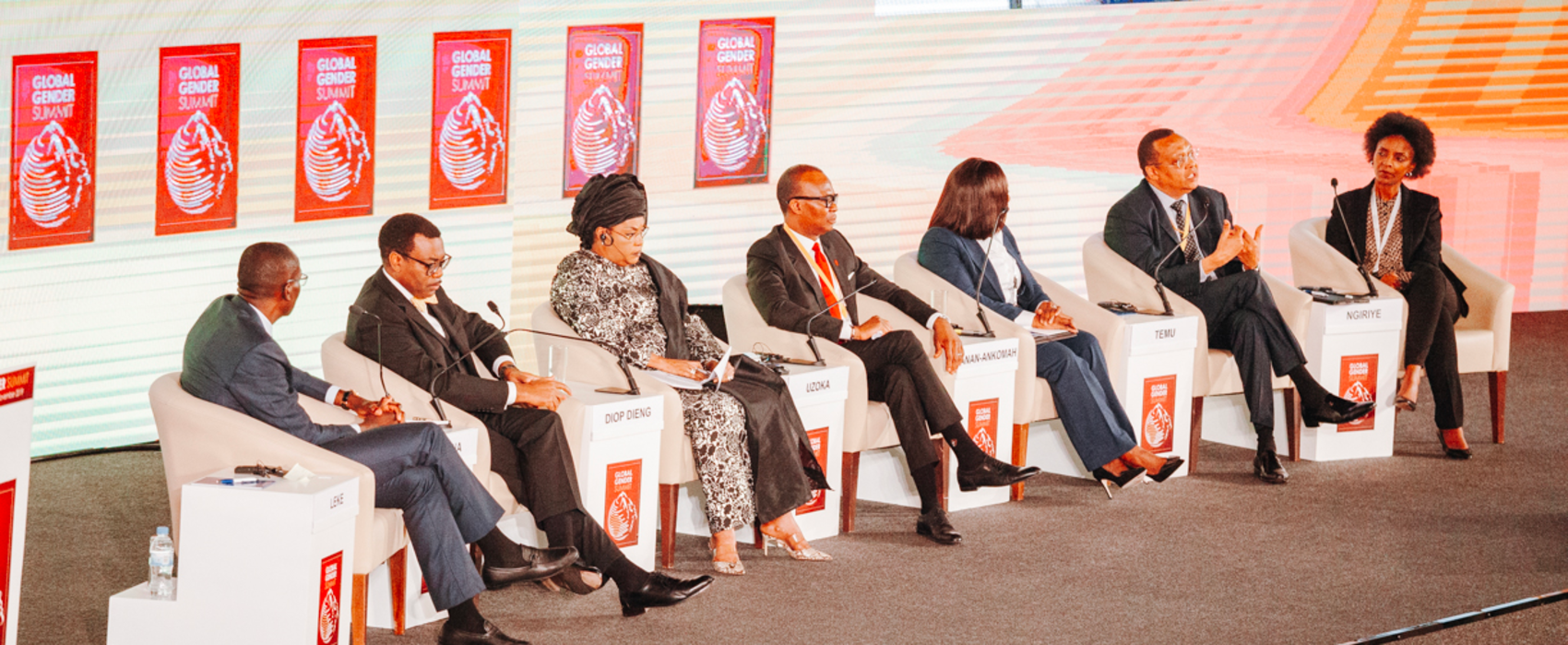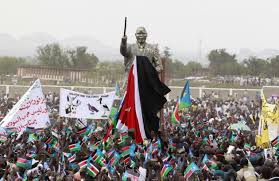Harare City AimsTo Reclaim Lost Glory Through Greening Initiatives
July 14, 2017
By Wallace Mawire
[caption id="attachment_39214" align="alignleft" width="300"] Engineer Phillip Pfukwa[/caption]
Once dubbed the “Sunshine City” and yearning to reclaim its lost
glory following a decade long economic decline experienced in
Zimbabwe, Harare City Council is embarking on greening city project
initiatives to attain its former world class city status ranking.
Harare City Council Director of Works, Engineer Phillip Pfukwa told
participants at a recent Zimbabwe Energy Council informed dialogue
series on the green city concept initiative that the City, the
country and Africa are under siege with the environment feeling the
strain. Pfukwa said that industries need to develop and co-exist with
nature.
According to Pfukwa, Harare city is facing problems such as land
pressures for residential stands developments and the rural to urban
migration, excessive littering in the city by “day trippers”, urban
and stream bank agriculture, wetlands destruction, deforestation and
indiscriminate tree cutting including inefficient use of energy like
electricity, gas, coal, just to mention a few.
Pfukwa said that there are three fundamental priorities in urban
planning which include, creating green cities, creating growing cities
and creating just cities. He added that these are associated with
three fundamental conflicts over resources, property and development.
“City of Harare recognizes the need for a green city and deliberately
strives to provide for parks, active and passive recreational spaces,
greenbelts and to preserve wetlands and other ecologically sensitive
spaces,” Engineer Pfukwa said.
He added that local plans, town planning schemes and layout plans
are used to zone and define conservation areas and ensuring that there
is a balance amongst the priorities of social equity, economic
development and environmental sustainability.
Some of the greening initiatives Harare City Council is embarking
on under the greening city concept include reviving the mass transit
systems It is also reported that City of Harare has adopted integrated
development as a planning concept. This entails reduction of the
carbon footprint by minimizing use of motorized transit systems as
industrial, commercial and recreational uses are mixed/integrated with
residential development.
“As a result people either have to walk or cycle to shopping, working
and recreational facilities that are located within their places of
work,” Pfukwa said.
Some of the greening initiatives Harare City Council is embarking on
under the greening city concept include reviving the mass transit
system.
According to Pfukwa, where industrial and residential developments
are neither compatible nor complimentary, the city has always been
aware of the need for mass rapid transit systems.
“Unfortunately the Bus Rapid Transit (BRT) system that minimized the
carbon foot print of the City faced viability challenges in the face
of severe competition after deregulation of the public transport
sector. City of Harare is courting suitable investors into the
public transport for an efficient and effective BRT. This should
result in modal share and reduce carbon emissions into the
atmosphere,” Pfukwa said.
The city is promoting the use of non-motorized transit systems.
Pfukwa said that the Central Business District (CBD), mainly along
First Street and Speke Avenue, has been closed from all motorized
traffic
“More pedestrian walkways are being considered in the CBD, in order
to promote cycling to work. City of Harare will rehabilitate all
cycle tracks to ensure safety of cyclists. Most shopping malls in
suburbia are planned with generous provisions of pedestrian malls,’ he
said.
He added that the city also welcomes corporate players who want to
partner the City in greening streets and parks as their corporate
social contribution to environmental sustainability.
“A number of such corporate social responsibility agreements are in
place for greening of road islands, road verges and roundabouts,” he
added.
Some greening initiatives the city is embarking on outlined by
Pfukwa include upgrading of 6400 units 250W HPS street lights to
less than 100W LED lights by December 2019 under the solar street
lighting project. He said that ±960kW have been completed off-grid.
The projects are being financed through Public Private
Partnerships (PPPs) with local and international private companies.
On energy efficiency initiatives, Harare city is promoting use of LED
lighting with at least 3000 streetlights having been upgraded. The
initiative is expected to upgrade 250W HPS to 100W LED by December
2017.The targeted consumption saving is 450KW.The project also aims to
complete 2 500 twin fluorescent street lights upgrade of 80W to 40W
targeted consumption saving.
The city is also implementing the Morton Jeffray Water treatment
plant energy efficiency initiatives.
The Morton Jeffrey Water Treatment works upgrading initiative,
according to Engineer Pfukwa aims to increase treatment capacity
from 400 (ML) Mega Litres per day to 704Mega Litres per day. He says
that currently the initiative has achieved at least 500Mega Litres
per day.
The works include pump-sets replacement, clarifiers, filters upgrade
and general automation of the plant.
“Energy efficiency activities carried out include, PF correction
schemes resuscitation, soft-starters, Energy Efficiency rated
equipment such as replacements and lighting , waste to energy
conversion at waste treatment plants,” Engineer Pfukwa said.
The City of Harare and the European Union (EU) are also jointly
funding the construction of an 800 cubic metre biogas plant in Mbare
high density suburb .
It is reported that the biogas digester shall be a CARMATEC type
design. The fixed dome digester technology shall be underground, with
no moving parts and no heating system. The gas from the digesters
shall be used to power a 100kVA electricity generator.
Pkukwa said that at least 20 tonnes of waste are generated per day at
Mbare Musika most of which is bio-degradable material. He added that
they hope to commission the project by September or October 2017.He
said that the project will absorb waste material from the market into
biogas instead of taking it Pomona and will minimise air pollution.
Pfukwa said that the biogas project aims to improve the health and
hygiene conditions and to provide improved access to clean, affordable
and renewable energy to the Mbare community. He said that the the
expected outputs or results in terms of services provided by the
project are waste separation being introduced in Mbare Musika market
in Harare, a biogas-based waste management system for organic waste
and sewage being established, electricity being generated from biogas
and being fed into the national electricity grid and a sustainable
concept for a biogas-based waste management system, including the
use of biogas and biogas sludge being developed as a model for the
country.
The City of Harare has also identified investment in a
Waste-to-Energy plant at Pomona as a major component of the City’s
Integrated Municipal Waste Management Plan. The City and the
surrounding towns of Chitungwiza, Norton, Ruwa and Epworth generates
approximately 1 000 tons per day of waste, according to Engineer
Pfukwa.
He says that the goal of the project is to develop a waste-to-energy
plant using the available modern technology that would absorb all
municipal solid waste. He said that prefeasibility studies indicate
that power to be produced from the plant is expected to exceed
30MW.The project is to be financed through a PPP and the City is in
the process of finalising the selection of the partner to implement
the project.
Pfukwa said that six companies have expressed interest in the project
are bidding through a competitive tender system. He said that at least
$80 million is expected to put up the plant and produce electricity.
It is also reported that landfills like the Pomona one act like large
anaerobic digesters. Substantial volumes of gas form naturally as
rubbish and refuse decompose over time. It is also said that if the
rubbish is not managed properly, the gasses impact negatively on the
environment. It is also said that landfill gas recovery technology has
advanced rapidly in the last decade worldwide.
Pfukwa added that the project should have been on stream six months
back but was stalled by delayed finalisation of the Joint Ventures Act
and bureaucracy.He said that the project is expected to be finalised
in a year’s time from now.He said that bio-degradable material and
plastics should be digested to gas to minimise emissions and pollution
from Pomona.
Pfukwa also revealed that the City of Harare intends to set up at
least a minimum 30MW solar power plant at one multiple use facility in
the city. He said that the target is to ensure 25% of the city’s
energy mix comes from renewable energy sources. The project is
expected to be financed through a PPP.
He said that an MOU for the project has been signed and the area for
development of the project has been identified. The project will use
solar panels to produce electricity and is expected to be on stream in
the next six months from now.
Engineer Phillip Pfukwa[/caption]
Once dubbed the “Sunshine City” and yearning to reclaim its lost
glory following a decade long economic decline experienced in
Zimbabwe, Harare City Council is embarking on greening city project
initiatives to attain its former world class city status ranking.
Harare City Council Director of Works, Engineer Phillip Pfukwa told
participants at a recent Zimbabwe Energy Council informed dialogue
series on the green city concept initiative that the City, the
country and Africa are under siege with the environment feeling the
strain. Pfukwa said that industries need to develop and co-exist with
nature.
According to Pfukwa, Harare city is facing problems such as land
pressures for residential stands developments and the rural to urban
migration, excessive littering in the city by “day trippers”, urban
and stream bank agriculture, wetlands destruction, deforestation and
indiscriminate tree cutting including inefficient use of energy like
electricity, gas, coal, just to mention a few.
Pfukwa said that there are three fundamental priorities in urban
planning which include, creating green cities, creating growing cities
and creating just cities. He added that these are associated with
three fundamental conflicts over resources, property and development.
“City of Harare recognizes the need for a green city and deliberately
strives to provide for parks, active and passive recreational spaces,
greenbelts and to preserve wetlands and other ecologically sensitive
spaces,” Engineer Pfukwa said.
He added that local plans, town planning schemes and layout plans
are used to zone and define conservation areas and ensuring that there
is a balance amongst the priorities of social equity, economic
development and environmental sustainability.
Some of the greening initiatives Harare City Council is embarking
on under the greening city concept include reviving the mass transit
systems It is also reported that City of Harare has adopted integrated
development as a planning concept. This entails reduction of the
carbon footprint by minimizing use of motorized transit systems as
industrial, commercial and recreational uses are mixed/integrated with
residential development.
“As a result people either have to walk or cycle to shopping, working
and recreational facilities that are located within their places of
work,” Pfukwa said.
Some of the greening initiatives Harare City Council is embarking on
under the greening city concept include reviving the mass transit
system.
According to Pfukwa, where industrial and residential developments
are neither compatible nor complimentary, the city has always been
aware of the need for mass rapid transit systems.
“Unfortunately the Bus Rapid Transit (BRT) system that minimized the
carbon foot print of the City faced viability challenges in the face
of severe competition after deregulation of the public transport
sector. City of Harare is courting suitable investors into the
public transport for an efficient and effective BRT. This should
result in modal share and reduce carbon emissions into the
atmosphere,” Pfukwa said.
The city is promoting the use of non-motorized transit systems.
Pfukwa said that the Central Business District (CBD), mainly along
First Street and Speke Avenue, has been closed from all motorized
traffic
“More pedestrian walkways are being considered in the CBD, in order
to promote cycling to work. City of Harare will rehabilitate all
cycle tracks to ensure safety of cyclists. Most shopping malls in
suburbia are planned with generous provisions of pedestrian malls,’ he
said.
He added that the city also welcomes corporate players who want to
partner the City in greening streets and parks as their corporate
social contribution to environmental sustainability.
“A number of such corporate social responsibility agreements are in
place for greening of road islands, road verges and roundabouts,” he
added.
Some greening initiatives the city is embarking on outlined by
Pfukwa include upgrading of 6400 units 250W HPS street lights to
less than 100W LED lights by December 2019 under the solar street
lighting project. He said that ±960kW have been completed off-grid.
The projects are being financed through Public Private
Partnerships (PPPs) with local and international private companies.
On energy efficiency initiatives, Harare city is promoting use of LED
lighting with at least 3000 streetlights having been upgraded. The
initiative is expected to upgrade 250W HPS to 100W LED by December
2017.The targeted consumption saving is 450KW.The project also aims to
complete 2 500 twin fluorescent street lights upgrade of 80W to 40W
targeted consumption saving.
The city is also implementing the Morton Jeffray Water treatment
plant energy efficiency initiatives.
The Morton Jeffrey Water Treatment works upgrading initiative,
according to Engineer Pfukwa aims to increase treatment capacity
from 400 (ML) Mega Litres per day to 704Mega Litres per day. He says
that currently the initiative has achieved at least 500Mega Litres
per day.
The works include pump-sets replacement, clarifiers, filters upgrade
and general automation of the plant.
“Energy efficiency activities carried out include, PF correction
schemes resuscitation, soft-starters, Energy Efficiency rated
equipment such as replacements and lighting , waste to energy
conversion at waste treatment plants,” Engineer Pfukwa said.
The City of Harare and the European Union (EU) are also jointly
funding the construction of an 800 cubic metre biogas plant in Mbare
high density suburb .
It is reported that the biogas digester shall be a CARMATEC type
design. The fixed dome digester technology shall be underground, with
no moving parts and no heating system. The gas from the digesters
shall be used to power a 100kVA electricity generator.
Pkukwa said that at least 20 tonnes of waste are generated per day at
Mbare Musika most of which is bio-degradable material. He added that
they hope to commission the project by September or October 2017.He
said that the project will absorb waste material from the market into
biogas instead of taking it Pomona and will minimise air pollution.
Pfukwa said that the biogas project aims to improve the health and
hygiene conditions and to provide improved access to clean, affordable
and renewable energy to the Mbare community. He said that the the
expected outputs or results in terms of services provided by the
project are waste separation being introduced in Mbare Musika market
in Harare, a biogas-based waste management system for organic waste
and sewage being established, electricity being generated from biogas
and being fed into the national electricity grid and a sustainable
concept for a biogas-based waste management system, including the
use of biogas and biogas sludge being developed as a model for the
country.
The City of Harare has also identified investment in a
Waste-to-Energy plant at Pomona as a major component of the City’s
Integrated Municipal Waste Management Plan. The City and the
surrounding towns of Chitungwiza, Norton, Ruwa and Epworth generates
approximately 1 000 tons per day of waste, according to Engineer
Pfukwa.
He says that the goal of the project is to develop a waste-to-energy
plant using the available modern technology that would absorb all
municipal solid waste. He said that prefeasibility studies indicate
that power to be produced from the plant is expected to exceed
30MW.The project is to be financed through a PPP and the City is in
the process of finalising the selection of the partner to implement
the project.
Pfukwa said that six companies have expressed interest in the project
are bidding through a competitive tender system. He said that at least
$80 million is expected to put up the plant and produce electricity.
It is also reported that landfills like the Pomona one act like large
anaerobic digesters. Substantial volumes of gas form naturally as
rubbish and refuse decompose over time. It is also said that if the
rubbish is not managed properly, the gasses impact negatively on the
environment. It is also said that landfill gas recovery technology has
advanced rapidly in the last decade worldwide.
Pfukwa added that the project should have been on stream six months
back but was stalled by delayed finalisation of the Joint Ventures Act
and bureaucracy.He said that the project is expected to be finalised
in a year’s time from now.He said that bio-degradable material and
plastics should be digested to gas to minimise emissions and pollution
from Pomona.
Pfukwa also revealed that the City of Harare intends to set up at
least a minimum 30MW solar power plant at one multiple use facility in
the city. He said that the target is to ensure 25% of the city’s
energy mix comes from renewable energy sources. The project is
expected to be financed through a PPP.
He said that an MOU for the project has been signed and the area for
development of the project has been identified. The project will use
solar panels to produce electricity and is expected to be on stream in
the next six months from now.































